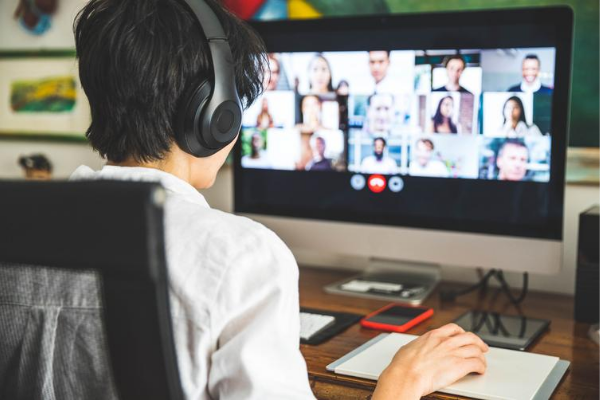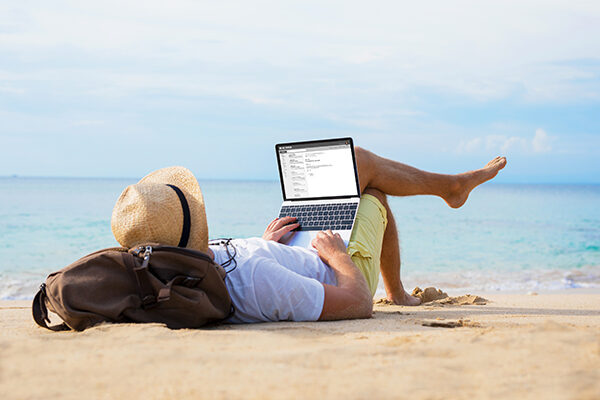Since lockdown, we now have to accept meetings on Zoom, Google Hangouts, Skype – you name it. Steve Dell, a hypnotherapist, gives his best tips on how to accept video calls when you have social anxiety.
Social anxiety can affect people in many different ways. Some social anxiety sufferers feel self-conscious in social situations, whereas some severe sufferers refrain from going out altogether. This can make everyday tasks like going to work or school very difficult.
Even working from home can bring about challenges, as some social phobia sufferers find conference calling just as difficult as face-to-face meetings. If this sounds like you, I’ve put together a few tips to help you cope whilst quarantining.

What is social anxiety?
Social anxiety, also known as social phobia, is one of the most common anxiety disorders. Many people think that this is another term for being shy, however, in reality this is a debilitating condition that stops people from realising their full potential.
You might suffer from social anxiety disorder if you dread social situations like shopping or clubbing, you feel anxious in public, or you avoid going out altogether. This can have a significant impact on professional and personal life, so it’s important to get the right help if you’re struggling to cope.
What are the symptoms of social anxiety?
Symptoms of social anxiety can vary from person to person, but in general sufferers can experience the following in social situations:
- Sweating
- Fast heart rate
- Uncontrollable trembling or shaking
Those suffering from social phobia also might:
- Avoid eye contact
- Avoid starting conversations
- Avoid social or public gatherings
Some people may avoid answering calls altogether as they are anxious, worried or scared of embarrassing themselves
Why is video calling difficult for social anxiety sufferers?
Despite the distance between members of the group, a conference or video call is still seen as a social situation by social anxiety sufferers. Some people may avoid answering calls altogether as they are anxious, worried, or scared of embarrassing themselves.
As a freelancer, it’s likely that you’ll have to participate in a video call at some point in your career. But if you suffer from social anxiety disorder, this can be an extremely daunting task. That’s why I’ve put together a few tips to help you deal with video calls whilst working from home.
Video calling tips
Practice with family and friends
If you don’t video call often or you’ve never been on a video call, you can build your confidence by practising with family and friends.
This is an informal form of exposure therapy, and it will help you to get used to the video conferencing experience. Over time, you’ll become more comfortable with the process. This will help you feel more at ease when you’re on work-related calls.
Preparation is key
Before you start your call, make notes of what you want to say and recite this multiple times. If you know what you need to discuss, this will help the flow of the conversation and boost your confidence when it comes to the real thing.
Of course, it’s important to remember that the call may not go exactly to plan, but this extra step can help you to feel less anxious and better equipped to face a video call.
Put your mental health first
Above all, it’s important to make your mental health the number one priority whilst working from home and anywhere outside the home too.
If this means postponing a call until a later date, or cancelling it altogether, so be it. Important messages can also be relayed over text and email, so don’t put too much pressure on yourself to do something you’re not comfortable with or ready for.






